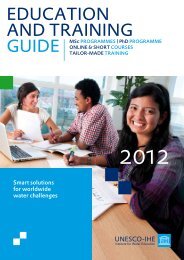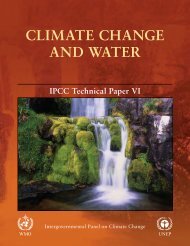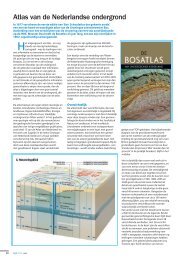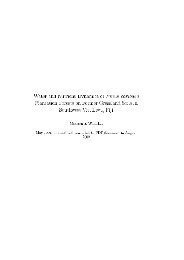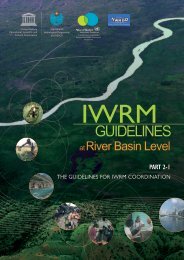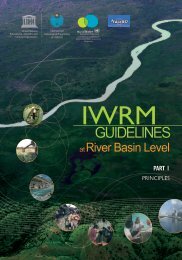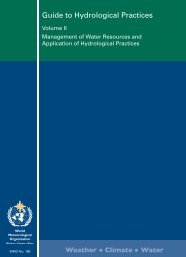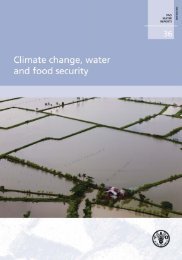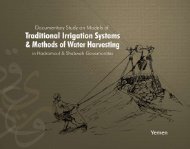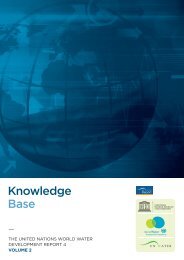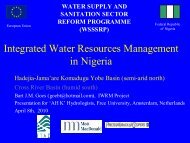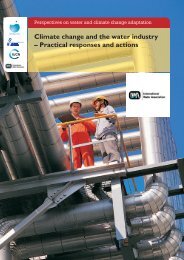Non-renewable groundwater resources: a ... - unesdoc - Unesco
Non-renewable groundwater resources: a ... - unesdoc - Unesco
Non-renewable groundwater resources: a ... - unesdoc - Unesco
- No tags were found...
Create successful ePaper yourself
Turn your PDF publications into a flip-book with our unique Google optimized e-Paper software.
CHAPTER 5 ■ REGIONAL CASESThe Monturaqui – Negrillar – TilopozoAquifer of ChileJaime Muñoz RodríguezIntroductionPresently almost all of the surface water <strong>resources</strong> in Chile are allocated to current users of waterand to the environment. In the Chilean Water Code the rights given to water users are in perpetuityregardless of their benefits. Managing water given these water rights without causing economicor environmental damages represents an important challenge for the Water ResourcesAdministration Department, Dirección General De Aguas of Chile.The demands for more water have focused on Chile’s <strong>groundwater</strong> <strong>resources</strong>. Many aquiferslocated in the northern portion of the country (Figure 1) have reached their limit of exploitation.Authorizations of new extractions of <strong>groundwater</strong> require an analysis of aquifer rechargerates and of aquifer storage behavior in the long run under alternative extraction policies. Forthese analyses, hydrological simulation models have been developed.The policy of Dirección General de Aguas related to the use of <strong>groundwater</strong> in Chile takesinto consideration the interests of the public, the physical characteristics of specific aquifersand available <strong>groundwater</strong>s, sustainable use and environmental protection, potential harm ordamage to third parties rights (surface or <strong>groundwater</strong>), and any legal requirements includingthe perpetual character of the granted rights to <strong>groundwater</strong> use.This paper outlines how the policy developed by the Dirección General de Aguas in Chileattempts to achieve a sustainable use of <strong>groundwater</strong> <strong>resources</strong> in the country specificallywith respect to the intensive utilization of <strong>groundwater</strong> <strong>resources</strong> for mining operations. Theextraction of <strong>groundwater</strong> is subject to an ‘Early Alert Plan’ to avoid irreversible environmentaldamages in sensible areas protected by the state.Adaptive aquifer managementunder intensive exploitationKnowledge of aquifer behaviour under alternative extraction rates and recharge scenarios isalways uncertain. Thus it becomes necessary to continually improve one’s knowledge aboutaquifer characteristics over time, and adapt to this new knowledge. The progressive knowledgeof the aquifer’s behaviour, the establishment of the acceptable impacts resulting from theexploitation of <strong>groundwater</strong>, and an ‘Early Alert Plan’ for the timely forecast of undesirableimpacts, are necessary requirements when authorizing new extractions of <strong>groundwater</strong> fromaquifers subject to intensive use and impacting environmentally sensible areas. Thus, granting<strong>groundwater</strong> use rights is necessarily subject to extraction policies that do not cause prejudiceor deterioration of third parties rights, including the environment.89




